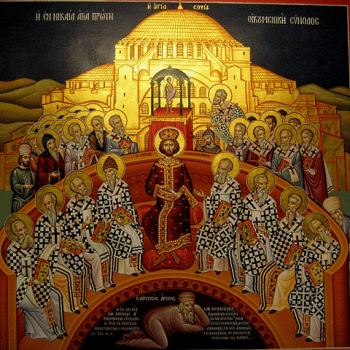The summer sun was just rising, there was still a layer of morning fog on parts of the pond, the trees were rich with different shades of green leaves, occasionally a bass would jump out of the water in an attempt to snag a water bug for breakfast, and at intervals ducks would make their usual terrible splash landing, sending rings of water out to the shore.
Even now as I pass a newsstand in the airport and see a cover of Field and Stream or Outdoor Life with a picture of an early morning scene on a lake or pond, I smile and think, "I've been there. I know what it is like." That image will always be with me in my heart, and I am grateful for it as a reminder of what it means to be truly alive.
These youthful experiences of mindfulness—whether at Briscoe or sitting on a rock in the woods making believe it was the beginning of time and I was the only person in the world—I now see as experiences of meditation. As I look back I recognize that they contain many of the important elements of meditation.
- I sat with my back fairly straight and simply gazed at the scene a few feet in front of me.
- I was patient without knowing I was being patient—I was in no hurry to go anywhere.
- I didn't plan to experience anything in particular, so the result was that many times the fruits of this time alone were rich and deep.
- I didn't think to judge or entertain any thoughts about the past or make plans for the future—being twelve years old and off for the summer just was what it was.
- I wasn't interested in solving or producing anything.
These were just gentle times, when I was alone without feeling lonely. I was someone who didn't feel he had been anywhere he wanted to get away from or return to. Nor did I think much about the future—it seemed too far away as I sat there in the forest by the pond. Such experiences need not be restricted to childhood. All of us have such moments as adults. They are good memories. When they come back they are beacons showing us how we can live even more like that now, rather than simply being nostalgic experiences we put on the shelf and look wistfully at as if they can't happen again.
Two other memories of the impact of silence and solitude, this time during my adult years, carry me away from home. One was when I was in Alaska leading a group of Catholic priests on a week's retreat aimed at tapping into the spirit of psychology. The locale was Alyeska, just outside of Anchorage. Those attending were housed in the lodge, the site of the morning conferences, as well as in small individual chalets that dotted the area. I was in one of the smallest chalets. It had a single large room, bathroom, and small kitchen on the first floor and a loft bedroom accessible from the first floor by ladder. Just perfect for me alone.
I observed a morning ritual that I have practiced for some time, thanks to a suggestion years ago by spiritual writer and friend Henri Nouwen. It is a simple ritual that involves getting up early, reading a bit, and then just sitting in silence—usually with a cup of coffee warming my hands.
However, that first day in Alaska when I opened the blinds on the large downstairs window, I could see a hanging glacier in the distance and realized at that moment I couldn't read first. There was no need for it. The sight was enough.
Each day in Alaska I would quietly sip my black coffee (there was no milk in the house) and relax with the spirit of the landscape and with gratitude for the time alone there. I felt like I was at the gates of heaven. This time opened my heart to all the beauty we have in life that we miss when we don't take out time in silence and solitude—no matter where we are. It also brought me back to another faraway place: Japan.
I had been asked to give a presentation in the south of Japan. I did this, and in gratitude they had arranged a visit to one of the holiest Shinto shrines, a shrine set among the trees in a lovely country-like setting. Its name was Ise Jingu. Of course I accepted this invitation; it proved to be a perfectly timed gift, coming after a busy trip to bustling Tokyo and Bangkok.
At the temple grounds I was accompanied by a teacher from America who would translate what the personal guide would be sharing with me about Ise Jingu. As it turned out, she had taught the guide's children when he was a forester, and now he was in charge of the shrine. Her familiarity with both the guide and the place told me that this would be a special treat.
We walked the temple grounds, and the guide pointed out many fascinating things. Finally, he stopped as we reached the center of a carefully carved, slightly arched bridge. He pointed down at the water and asked, "What do you see?" After a moment or two, I responded, "Water that is clear, cool, calm, and probably refreshing." He smiled, seemed pleased with my response, said "Hai" (yes), and then asked, "Now, what do you hear?"




